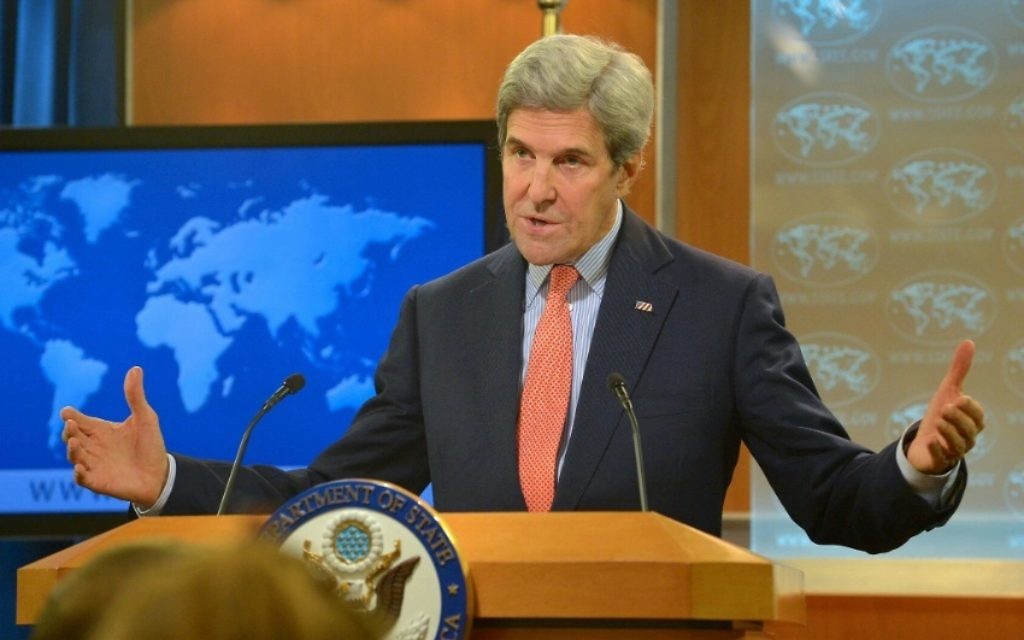Facing Mideast’s New Reality
Arab nations are no longer opposed to working with Israel, they just won’t tout the cooperation in public.
Assuming that U.N. Security Council Resolution 2334 doesn’t have any lasting ramifications, which is far from certain, history will likely judge President Barack Obama’s Middle East policy on what happens with Iran.
If it never goes nuclear and eventually gives up efforts to re-create the Persian Empire, he’ll get the credit. If it becomes a nuclear power, he’ll get the blame. If it skips the nuclear option but remains the primary state sponsor of terrorism and tries to assert regional hegemony, he’ll get mixed grades that reflect the politics of those doing the grading.
Ambassador Haim Koren’s recent visit to Atlanta, however, served as a reminder that we might never know the damage and missed opportunities inflicted on that volatile region by Obama.
Get The AJT Newsletter by email and never miss our top stories Free Sign Up
Koren, who served as Israel’s envoy to South Sudan and Egypt, moved off and on the record during a breakfast briefing Thursday, March 2, at Ken Stein’s Center for Israel Education, so I can’t provide some of the most entertaining details.
But Koren’s impressions reinforce the idea of Obama as someone more likely to be tough on friends and friendly to enemies (or nonfriends). And the picture Koren painted of American abdication of the superpower role in the region and of decisions that left U.S. friends bewildered can’t be ignored if we hope to assess how the United States can do the most good in the Middle East.
Koren supported the idea offered by Dennis Ross and other experts who have visited Atlanta the past year that the chaos and terror spread by Islamic State and Iranian aggression have created a rare opportunity for realignment in the Middle East — a shift that integrates Israel into the security operations of leading Sunni Muslim states.
The leaders of Egypt and Jordan, which have official peace with Israel, and nations such as Saudi Arabia and the United Arab Emirates, which do not, have learned to accept that Israel isn’t going away. They also have serious threats to worry about, and Israel can help them in areas of shared danger, most notably Iran and its subsidiaries, Islamic State, and the Muslim Brotherhood and offshoots such as Hamas.
Those Arab nations care less about the plight of the Palestinians than about themselves, so they’re not going to miss the chance to work with Israel. They just won’t tout the cooperation in public.
Unfortunately, it seems that the Obama administration did not encourage such Arab-Israeli coordination, at least in part because the administration was more interested in a legacy-making agreement, such as the Iran nuclear deal, than actual progress in the region.
The Palestinians thus dominated the administration’s non-Iran work, and Arab leaders couldn’t understand why the United States first let longtime friend Hosni Mubarak fall, then supported a Muslim Brotherhood president, Mohamed Morsi, against the secular Abdel Fattah el-Sisi.
Sisi, by the way, has done something Mubarak never did, Koren said: He has added the Camp David Accords to the school curriculum.
Secretary of State John Kerry insisted on incorporating Qatar — the patron of Hamas abroad and the oppressor imported labor at home — into plans and arrangements. No one else, particularly Israel, wanted anything to do with Qatar.
The Obama team also was enamored with Turkey, Koren said, but the Arab nations wanted nothing to do with their formal colonial power under a radicalizing regime.
The Saudis and others will never love Israel, but Koren said he can live with mere acceptance. That’s the diplomatic approach, and the United States going forward should try to support such improvements where possible instead of always swinging for a home-run deal.





comments